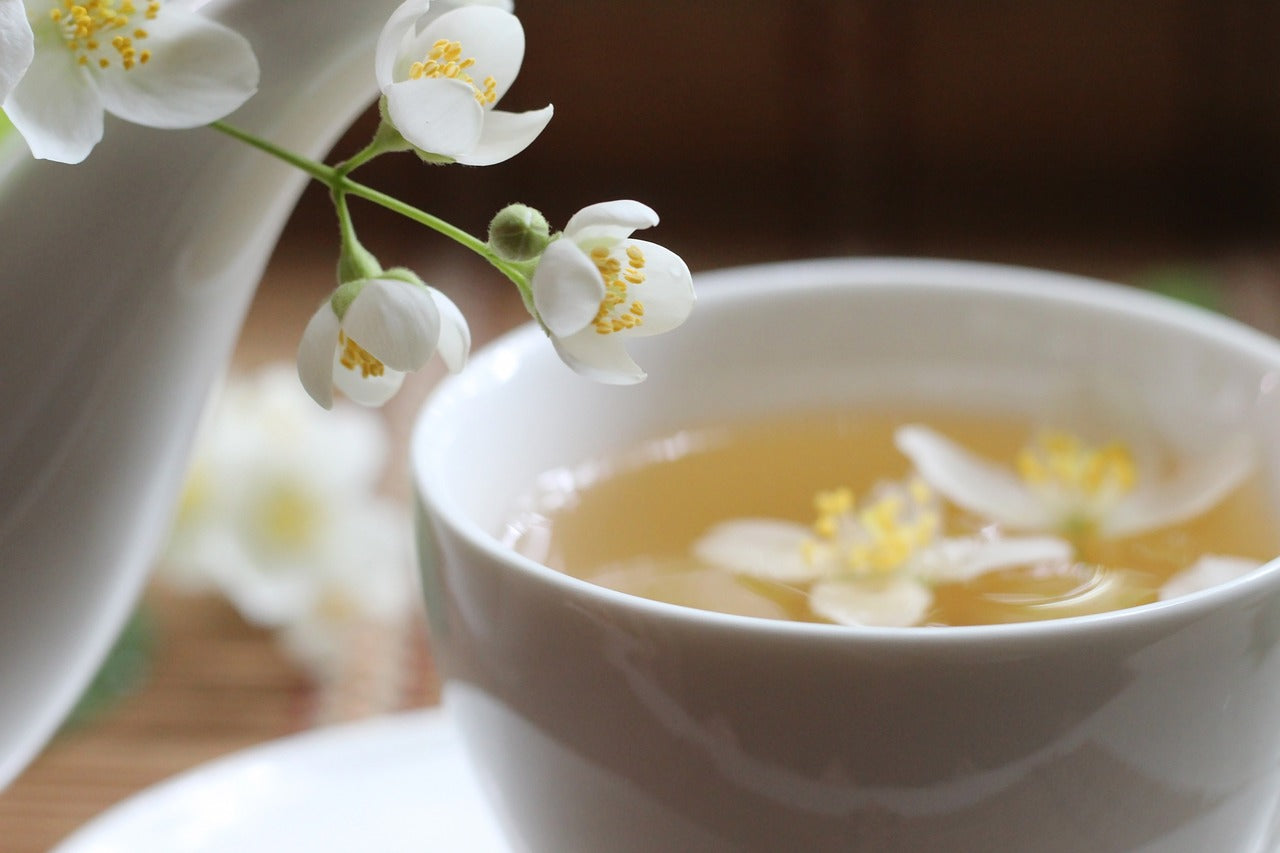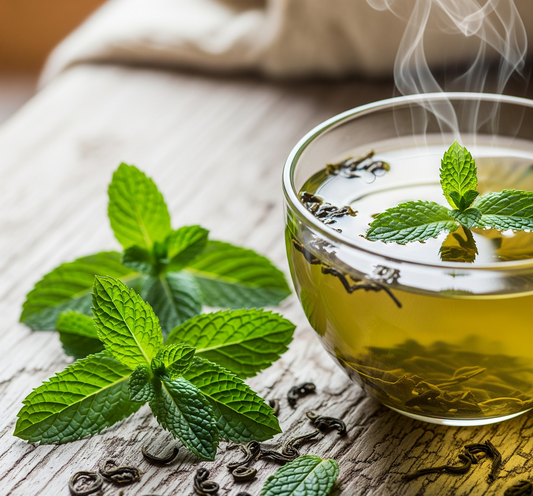Discover the world of organic white tea, from its unique flavor profiles to its health benefits. Learn about the different types of organic white tea, including Silver Needle, White Peony, and Shou Mei, and how to choose the best one for your taste and lifestyle. Explore the factors to consider when selecting organic white tea, including quality, flavor profile, origin, certifications, and brewing instructions.
Organic white tea is a healthy and delightful beverage offering a unique tea-drinking experience. When it comes to choosing the best organic white tea for you, there are several vital factors that you need to consider. In this article, we’ll explore white tea, the benefits of organic white tea, whether or not organic white tea contains caffeine, and the different types of white tea available. Familiarizing yourself with these aspects can help you make informed decisions in selecting the perfect organic white tea to suit your preferences and lifestyle. Happy reading and happy sipping.
What is White Tea?

To get right to it, white tea is a type of tea made from the young leaves and buds of the Camellia Sinensis plant. This tea is known for its delicate flavor, subtle sweetness, and light-opaque color. White tea is also the least processed of all teas. It goes through minimal processing, which helps to preserve its natural antioxidants and nutrients. White tea leaves are typically harvested during early spring when the leaves are the freshest. This is also why white tea is one of the most sought-after varieties of tea.
Types of Organic White Tea
Organic white tea comes in various forms, each with its unique flavor profiles, aroma, and characteristics. We have listed down some of the most popular types of organic white tea:
- Silver Needle White Tea: The Silver Needle white tea is one of the world's most prized and sought-after white tea. Renowned for its delicate fruity and floral aroma, and light and refreshing flavor, this organic white tea is made from only the youngest buds of the tea plants.
- White Peony White Tea: Another popular variety of organic white tea, the White Peony is known for its rich, floral flavor and delicate aroma. Unlike Silver Needle, this tea is made using a combination of young leaves and buds. It also has a comparatively sweeter taste than Silver Needle.
Try out our Silver Needle organic white tea we’ve aptly named Silver Yeti.
- Shou Mei White Tea: Shou Mei white tea is a more mature variety of white tea. It is made from older leaves and stems from the plant, and has a fuller body and a sweeter flavor profile compared to both Silver Needle and White Peony.
- Nan Mei White Tea: One of the rarest and most exotic varieties of organic white teas, Nan Mei white tea is grown in the Yunnan province of China. It is famous for its sweet and spicy flavor and aroma, with traces of fruits and flowers.
Choosing the Best Organic White Tea for You
Now that we’ve understood what white tea is and the various types of white tea available, let’s get into what you need to consider before you make your purchase:
-
Quality: With so many options and brands of organic white tea available in the market today, it’s important to look for options that are made using high-quality, fresh leaves and buds. Make sure to opt for teas that are sourced from reputable producers with a proven track record of practicing organic farming practices.
- Flavor Profile: Different white teas and brands will offer you a vastly different flavor profile. While some varieties may have floral notes, others may be more earthy or fruity. So choose a flavor that best appeals to your taste buds.
- Origin: Like wine, organic white tea produced in different regions offers unique characteristics. So, explore and experiment with teas from regions such as China, Nepal, and India to experience the diverse flavors and aromas of organic white tea.
- Certifications: Another important point to consider is to check for organic certifications to ensure that the organic white tea you’re drinking is free from pesticides and other synthetic chemicals that may affect your health. Always look for teas that are certified organic by reputable organizations.
- Brewing Instructions: Follow the recommended brewing instructions for the specific type of white tea you choose. Pay attention to water temperature, steeping time, and tea-to-water ratio to achieve the best flavor and aroma.
Once you’ve picked your organic white tea, make sure to follow the recommended brewing instructions mentioned on the packaging. Also pay close attention to the water temperature, steeping time, and the tea-to-water ratio to achieve the best flavor and aroma.
You may also want to read: Understanding The Dynamic Production Process Of White Tea
By considering these factors while exploring the diverse world of organic white tea, you can find the perfect tea that suits your lifestyle and taste preference. Whether you enjoy the light and floral aroma of Silver Needle white tea or the more robust and earthy flavors of the White Peony, organic white tea offers a wide range of flavor and health benefits that can enhance your tea-drinking experience.
Does Organic White Tea Have Caffeine?

One common question that tea drinkers often have is whether organic white tea contains caffeine. While white tea is generally considered to have lower caffeine content compared to black or green tea, it does contain some amount of caffeine. The caffeine content in white tea can vary depending on factors such as the type of white tea, brewing method, and steeping time.
One of the most common queries that tea drinkers often have is whether white tea contains caffeine. Well! Yes, white tea has caffeine. However, it is generally considered to have lower caffeine content compared to black or green tea. According to healthline, white teas contain 6–55 mg of caffeine per cup (250 mL). However, this may vary due to several factors:
- Type of tea: Bai Hao Yin Zhen, or as it is more commonly known in the West, Silver Needle contains the least amount of caffeine. This is because it is made only using tea buds, rather than tea leaves. These buds contain hydrophobic (water-fearing) hairs that may make extracting caffeine more difficult.
- The Brand: Different brands use different processing and harvesting techniques to make white tea. Even the slightest differences in either of the processes can vastly affect the chemical structure of the leaves and buds. So, naturally, significant differences in caffeine quantity may exist between different white tea brands.
- Size: Loose-leaf organic white tea is usually lower in caffeine compared to leaves that have been crushed and placed within teabags.
- Steeping time: As with other teas, the longer the white tea is steeped, the more caffeine that is extracted from the leaves. It is recommended to not steep the tea leaves for more than 5 minutes as some studies show that steeping tea for more than 7 to 10 minutes will significantly increase its caffeine content. Over-steeping will also bring out the bitterness of the tea.
However, it is worth noting that compared to other caffeinated beverages like coffee or energy drinks, white tea is still a much healthier option if you’re trying to lower your caffeine intake.
You may also want to read: Exploring Seven Amazing White Tea Benefits For Health
In conclusion, organic white tea is a versatile and healthy beverage that can be enjoyed in various ways. Understanding the benefits of organic white tea, its caffeine content, and the different types of organic white tea available can help you make informed decisions while choosing the perfect organic tea that suits your preference and lifestyle.




